To celebrate World Animal Day, we’re finding about the people that study animals – Zoologists and Animal Scientists and finding out what the difference between these subjects actually is.
First of all, both are branches of Biology, the study of all living things. Zoology is the study of the animal kingdom, including the distribution, evolution and behaviour of animals. Animal Science is the study of animals under human control, such as pets and farm animals, but what does this mean to our students?
We quizzed Chess, who recently finished her Zoology degree, and Iona, currently studying Animal Science, to find out what the courses were really like for them.
Why did you decide to study your course?
Chess: I always knew if I was going to university it would be to study Zoology. Sciences were always my strongest subjects and I’ve had a love of animals for as long as I can remember. I explored veterinary at first, but the day to day working life of a vet wasn’t for me. After spending six months training to be a field guide in South Africa I became certain that I wanted to work in either conservation planning or research. Therefore, studying zoology was an essential next step.
Iona: I came across the course on an open day, having come to Newcastle to look at Biology and Zoology. I liked all of the courses but Animal Science stood out for me because it focuses on the physiology, biochemistry and behaviour of domestic animals alongside the issues surrounding the industry.
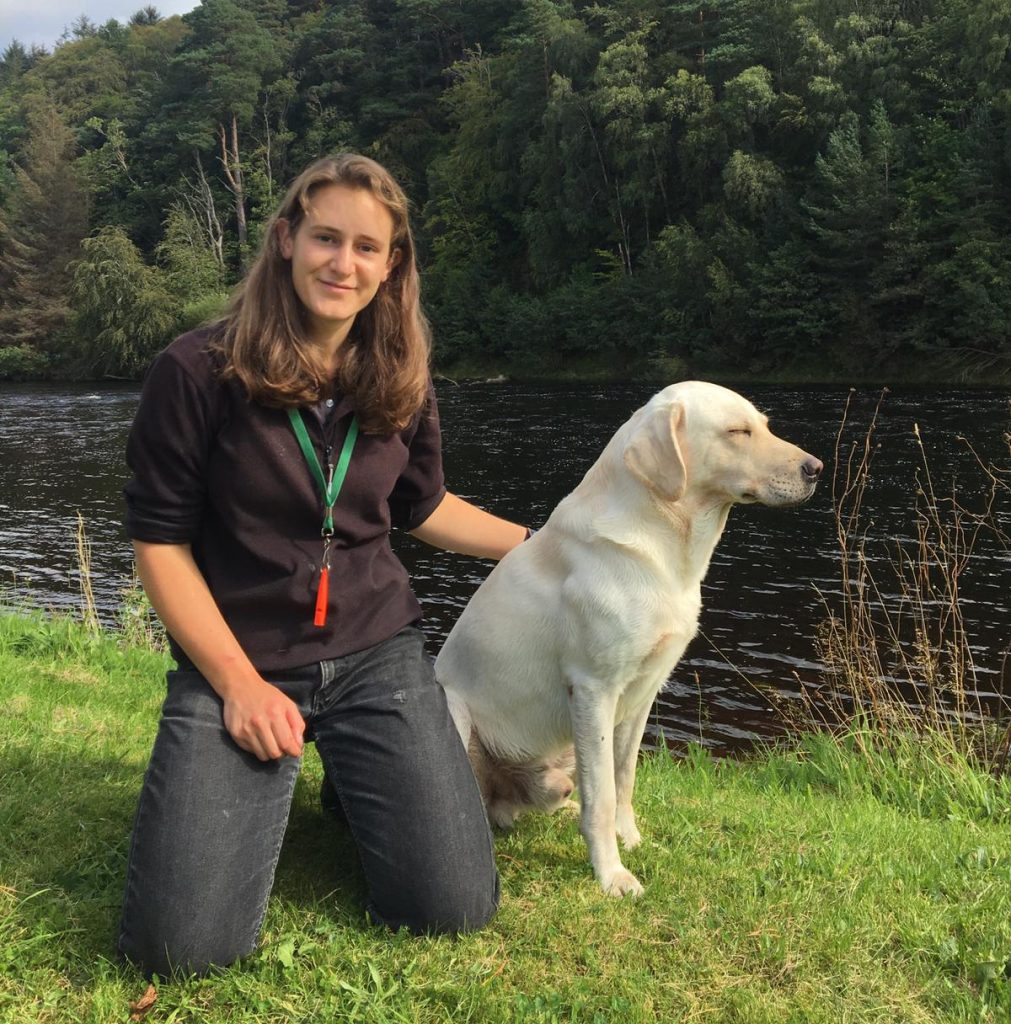
Do you get to go on any cool field trips?
Chess: When I was studying the options were Kielder forest, Millport in Scotland, or Crete. I chose to study birds in Kielder forest where we surveyed them by their calls. Other groups studied deer, small mammals, and beetles. There is also the option of a residential field course abroad in an additional module. In my year the group went to Thailand, others have been to South Africa. Everyone who went had nothing but good things to say about it.
Iona: We’ve been to the Northumbria Mounted Police stables, local animal shelters and a couple of zoos. They were all very different and provided unique learning experiences. We have also visited both of the two uni farms to look around the pig and dairy units which really helped to reinforce what we learnt in lectures.
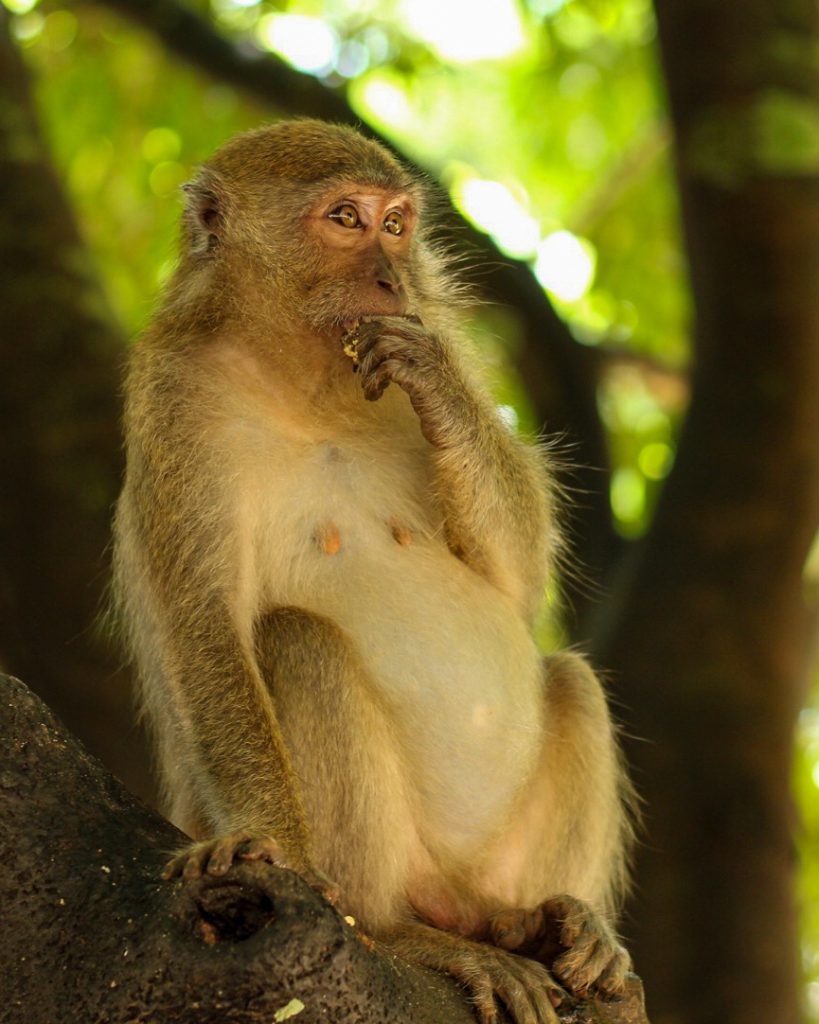
Have you ever done any work experience or a placement related to your degree (either before or during uni)?
Chess: I did a summer vacation scholarship between stage two and three, and I received maintenance funding to undertake an eight-week research project over the summer. This was an invaluable experience for me. It was the first opportunity to experience what a career in research would involve by working with academics to design and deliver a piece of my own research.
Iona: This summer, I spent some time with a multinational feed company, working with ration advisers, sales reps and regional managers. I’ve also worked with farm managers and herdsmen on large dairy units and sheep farms.
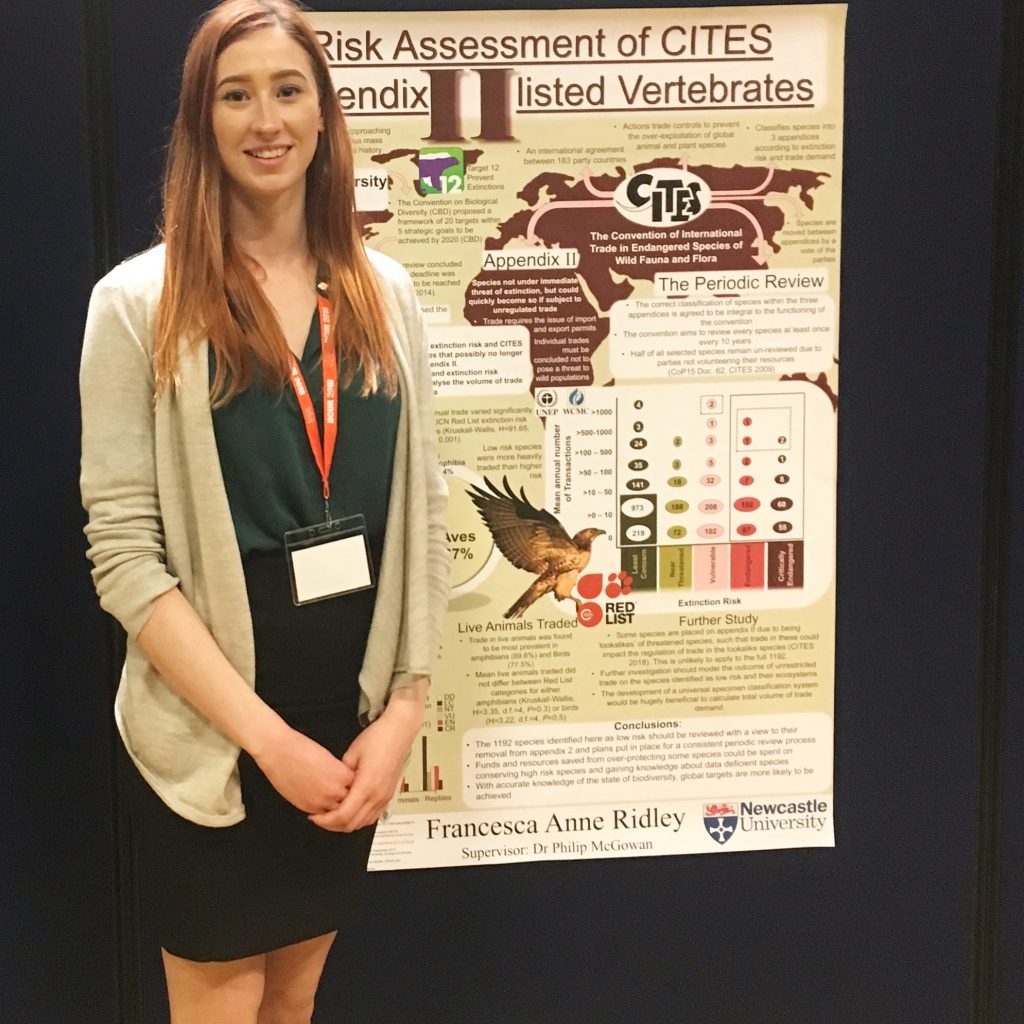
What do you hope to do after your degree?
Chess: I still want to continue into a career in research. After graduating, I completed an MSc Global Wildlife Science and Policy also at Newcastle and I am now just starting my PhD.
Iona: I am currently undecided about what I’d like to do after I graduate but I am looking into livestock nutrition or consultancy roles. Quality control and marketing also interests me so I’m currently exploring these options.
How much time do you spend in labs vs in the field vs in lectures/seminars?
Chess: The most time is spent in lectures. At stage one there are weekly lab sessions and regular field visits though the amount of these at later stages depends on the optional modules and projects you choose to undertake.
Iona: I spend the majority of my uni time in lectures and seminars but we’ll have a couple of field trips per term. We had about one lab session per week in Stage one and it varies in Stages two and three depending on the modules you choose.
The great thing about Animal Science is that we are a small cohort so our class sizes range from 20 when it’s just our course to 150 when we take modules with larger courses. You become very close with your course mates but also have the opportunity to make friends on different courses.
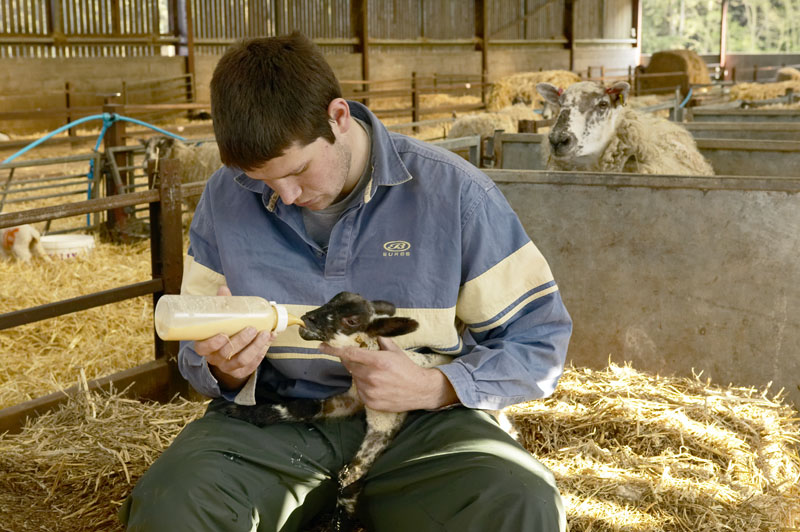
What do you think the biggest difference between Animal Science and Zoology is?
Chess: The biggest difference is definitely that Animal Science shares a lot of modules with Agriculture, so it focuses on domestic animals. This includes their care and management in an agricultural setting. Zoology on the other hand shares its first year with Biology. Therefore, the focus is on understanding the natural biological systems involving animals.
Iona: Animal Science mainly focuses on domestic species and the issues surrounding both companion and farm animals. Sustainability is a major theme that runs through the modules and topics are usually linked to current and future management techniques. I think that Animal Science contains the best aspects of Agriculture, Biology and Zoology.
Zoology focuses on mainly un-domesticated animals and their conservation along with physiology, behaviour and evolution.
Most importantly, what is your favourite animal?
Chess: In terms of unexplainable connection, a wolf. In terms of research interest, all species of rhino.
Iona: The dog! The wide range of dog breeds is incredible and the variety of roles they can play in our lives is endless.
Advice from the Experts
We also asked for an input from the lead academics from the courses what their advice would be for anyone deciding between the two.
Dr. Richard Bevan, a Senior Lecturer for Zoology said:
In its simplest form, I’d say that Animal Science can be thought of as ‘Applied Zoology’ and concentrates on farm and domestic animals while ‘Zoology’ deals with animals (all of them) in the wider context: from amoeba to whale. It is then an easy choice – if you are more interested in fish, sloths, crabs etc. then choose Zoology. If you are interested in how domestication has affected animals then Animal Science would be a better choice
From Animal Science, Dr. Catherine Douglas advised:
Animal Science – it’s not Veterinary or Biology or Zoology – it’s a bit of all of the these and more. I would suggest students look carefully at the topics (modules) covered and the species that each particular university specialises in. If you love domestic mammals, you don’t want a zoology course that focuses on wild animals, insects and birds.
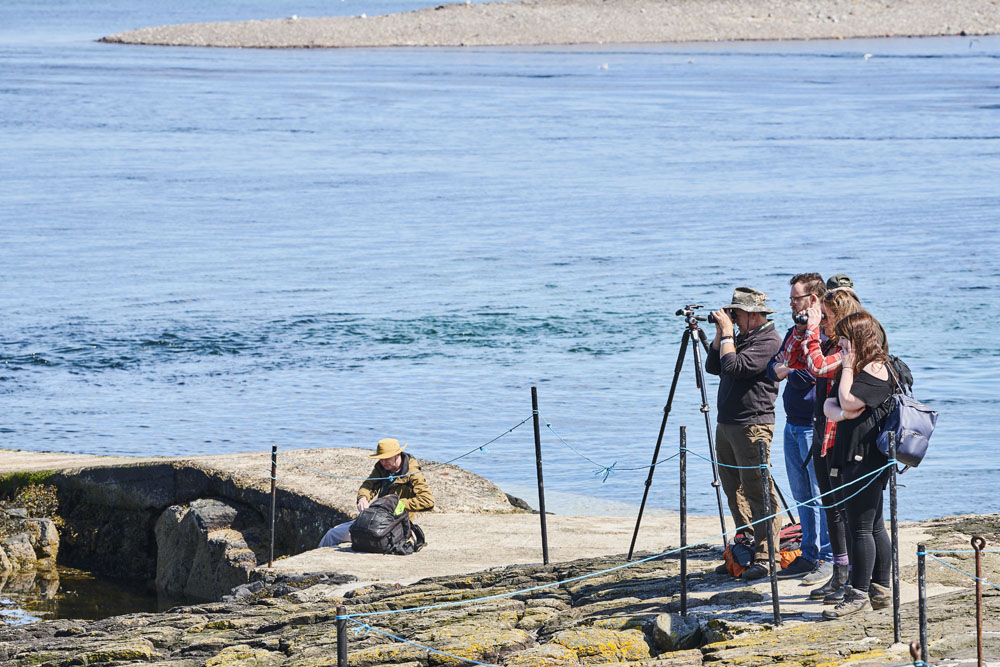
Career Prospects
Graduates from both our Zoology and Animal Science degrees have gone on to a range of exciting career paths. Animal Science graduates have gone on to work as Animal Nutritionists and Geneticists and many have gone into further study with Masters in Animal Behaviour as well as Journalism and Museum Studies. Some graduates have also gone on to study Veterinary Medicine.
Zoology grads have gone on to work in research as well in education and charities. Their job titles range from Research Assistant to Football Analyst to Events Officer at the Royal Society of Biology.
Find out More…
Explore our course pages to find out more about Animal Science and Zoology. Or if ocean wildlife is more your thing, we also offer a course in Marine Zoology.
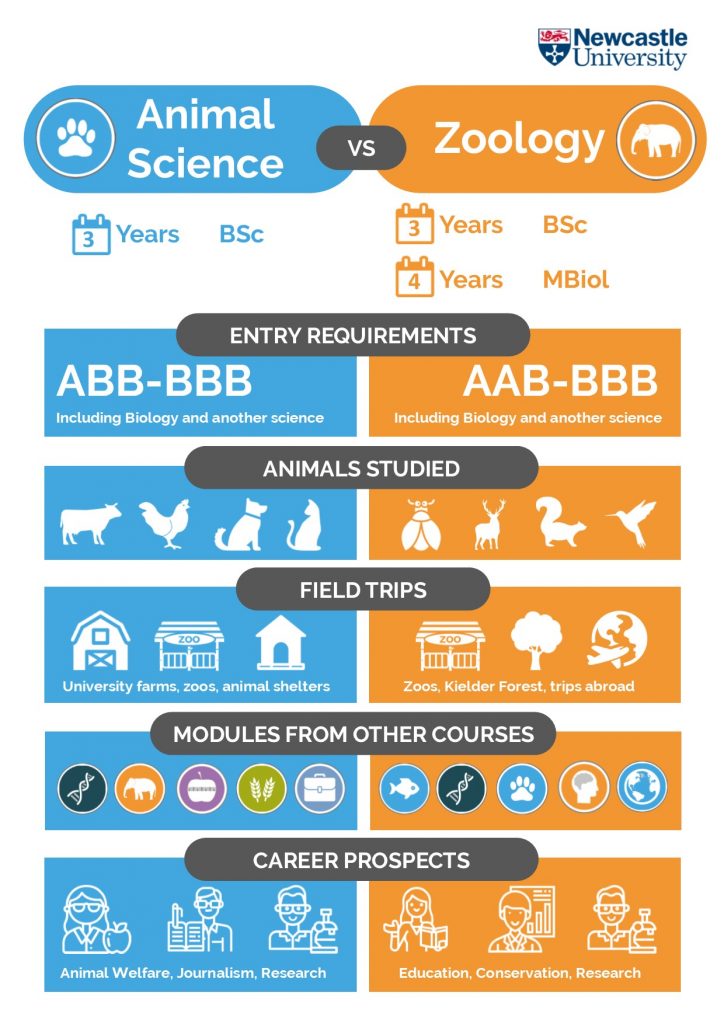
Intrested in animal behaviour
should students take zoology or animal science to get into vet-school?
Hi Trinity, great question! In the UK, students can go straight from school to studying Veterinary Science at university without doing an undergraduate degree first. Unfortunately, we don’t offer Veterinary Science here at Newcastle, but you can find out more about it here: https://www.ucas.com/explore/subjects/veterinary-science
Can someone apply the two
Hi Francis, yes you can apply to up to 5 different courses.
Hello! I’m currently an Animal Science major but want to get into Zoology after I graduate undergrad with this degree. Do you and an idea on what my next step should be after I graduate to peruse Zoology?
Hi Alexis,
I’m sure you would be qualified to do lots of Zoology roles with your Animal Science degree, but it might help to do some Zoology work experience or voluntary work whilst you’re still studying. You could also consider doing a masters degree in a Zoology-related topic. At Newcastle we have a few that might be of interest:
Animal Behaviour MRES -https://www.ncl.ac.uk/postgraduate/courses/degrees/animal-behaviour-mres
Wildlife Management MSc – https://www.ncl.ac.uk/postgraduate/courses/degrees/wildlife-management-msc
Conservation and Ecosystems Management MSc – https://www.ncl.ac.uk/postgraduate/courses/degrees/conservation-ecosystem-management-msc/
Ecology and Biodiversity MSc – https://www.ncl.ac.uk/postgraduate/courses/degrees/ecology-biodiversity-msc